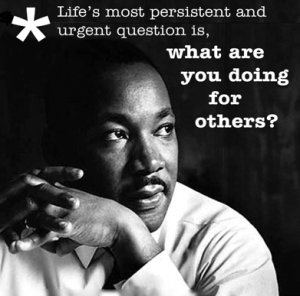I went to my first gay wedding a few weeks ago. Incidentally, I learned that the term “gay wedding” is probably redundant. It wasn’t so much that two men were getting married, but rather like most gay situations:
But as beautifully unremarkable as this event was, I realized that it is only recently that in quaint parts of the world, such as the USA, the fundamental civic relationship of marriage has finally become a federal right. In France, this year, champagne flows for all lovers at long last; in the Vatican, the new pope actually uttered “who am I to judge?” when it comes to homosexuality, clearly having made personal notes in the margins of The Book like a good reader.
The fact that systems around the world are declaring a need for equality and compassion, is hugely momentous indeed. On the 50th anniversary of MLK’s speech, too!
Russia, however, ever the buzzkill, continues to deny its support for such equality as it simultaneously tries to welcome the world to attend its 2014 Olympics–an event founded on sweaty naked men no less, stripped of title and ranking in the spirit of social equality, in order to compete on pure physicality. This ironic situation has aptly given rise to a mishmash of leading world politicians, comedians, and drag queens to boycott humanity’s retreat into the Siberia of human rights.
In the momentum of this moment, I see an opportunity for Global Economics to examine its role in inequality.
Inequality in politics or society may be unconstitutional, but in the realm of the economy it’s somehow given much more latitude. It’s still an acceptable Darwinian shrugging-off of Losers; a deep inconvenience to actually productive members of society. Working hard to earn your own way in this economy is about as pure as the spirit of the original Olympics. But every successive generation in our global economy seems to be plagued with rigged games, false starts, stacked odds against the many and doped-up advantages for the few. Worse still, few of us living in developed countries experience this personally any more, to fight against it. After all, we’ve passed numerous laws for upward mobility for fellow citizens and we pay taxes within our nation states to support the social safety net.
But if I may point us to our lowly toaster:
We are neck-deep in global consequences of our every purchase, every day! Coffee. Banana. Fork. Toothbrush. The global economy crams into our mouths every morning, for example. Thus, it’s gotten waaaaay past anything that our relationship with our single nation state can address. Our entrenchment in the global network of people, societies, difficulties and fates requires that we address this new world as world citizens. We are starting to do it socially, but not economically.
If we in the West are socially evolved enough now to throw down over the unequal treatment of Russian gays, a both super-niche and super-national equality issue, why aren’t we even discussing the systematic economic suppression of SO MANY GROUPS around the world that are regularly affected by our economic choices and the policies of our elected Western governments? Unequally paid women, child-labourers, subsistence wage factory workers, trafficked workers, modern day slaves, civilians in warzones containing precious elements for our luxury products? What exactly is the net effect of our “support of civil rights” around the world?
I don’t think we know.
Our capitalistic system, in which we swim as oblivious fish, cannot deny its origins formed in the era of subjugating and enslaving whole races and dominating sovereign countries for centuries. These “free” labour and resources fed the expansionary addiction of the master or colonial power and have inevitably set the tone for what we have today. Though, in the West because we have mostly sent off-shore the industrial jobs and all their Oliver Twist-era social ills, our everyday capitalism feels benign. We may still have the rich-get-richer, poorer-get-poorer, private-profit vs. public-losses issues–but they’ve become hugely abstracted in the way:
1. labyrinthine stock market blips create overnight billionaires and crush others,
2. celebrity, speculation and branding all command absurd pay scales,
3. weak-headed regulatory agencies stare paralyzed into the election cycle, unable to affect a legislative bill
We just can’t explain it anymore. And I’m not even about to suggest Karl Marx to the rescue. Marx’s “solution” for capitalism never accounted for an upcoming 10 billion people, half of whom are going to use and be ad-targeted by Facebook. It did not have credit cards, nor worldwide stock exchanges that traded in nano-seconds. It didn’t have e-commerce, nor demonstrations organized by social media. It didn’t have record student debt, nor housing prices 8 times the average household yearly income. It didn’t have tourmaline mined from the Congo for 50 million internet devices, nor European banks leveraged at 56 times. It didn’t have middle-class countries going bankrupt, nor 200% debt-to-GDP. It did not have 17,000 nuclear warheads, nor nuclear power nor nuclear disasters. Marx, nor anyone else bearded, moustachioed or shaven, in agreement with him or not, living in the era of rampant cholera and TB, had any tools to face what we’ve got now.
It doesn’t help that modern economists out there are still debating Marx, Hayek, Friedman and Keynes and John Adams for crissakes–long dead economic theorists. Looooooong dead. Economists are quoting Depression Era / post-World War 2 economic policy to recover from TODAY’S recessions; recommending raising or lowering interest rates as others have for the past 130 years; wondering whether austerity or stimulus is the right policy; to print or not to print more money? Like binary OCD for the past 80 years! Or too scared to face today’s complexities. With the speed and scale of the global economy, and the markets and consequences within it busting out exponentially, today’s economists are like pre-antibiotic triage nurses showing up to the ER with nothing but smelling salts and rusty extraction pliers. The creak and rust of their “tools” almost guarantee a side-effect of economic tetanus for every problem solved! And it’s they who advise our governments? We are done for!
Unless. Unless we all take the understanding of economics into our own hands, the way we have with civil rights. Whaaa? How?
1. Don’t depend on government to solve anything. Individuals make the hugest difference. Today, Consumers and Facebookers (etc.) have no boundaries. They are powerful in this age:
Can we just say, “I’ve paid my taxes; that’s how I care for others” ? Within our own nation states, the answer has become largely yes–as countries have a national interest in priming and promoting their human resources for the world market by using tax money to support them. But our individual economic actions are actually so far reaching now, beyond the boundaries of our nation states. We make global choices with everything we buy. We have the power to spread our choices to our friends and influence them. We can influence industries en masse with our values. If you have money, insist on master products, over ones with quick obsolescence cycles. If you don’t, take good care of your things. Buy from micro-breweries, boutiques, local farmers, or multi-nationals who are getting it right.
2. Learn from history.
The main reason behind economic inequality is the ghettoization of cheap labourers to other areas of the world. Rights that we value are withheld from them. We may believe in universal healthcare in our own country, yet we bargain hunt for shoes glued together by a worker who has necessarily had to forego hers (meaning her Healthcare; and I guess her shoes too in some cases) in order to keep it cheap. The sense of actively preventing another person from getting Healthcare (or safe working conditions etc.) is not real to us because many of us believe consuming is a harmless, even economically helpful activity. We may recognize the patented creepy strategy of ghettoization as one used to achieve single-minded political utopias in the past, but for the sake of the economy today, we figure, it’s just business. Recognize this hypocrisy!
3. Apply your thinking, and exponentiate it.
Could Martin Luther King Jr.’s speech 50 years ago be applied to the marginalized people of the global economy? Is it asking people of Western countries to vote for real global leaders?
“In a sense we’ve come to our nation’s capital to cash a check. When the architects of our republic wrote the magnificent words of the Constitution and the Declaration of Independence, they were signing a promissory note to which every American was to fall heir. This note was a promise that all men, yes, black men as well as white men, would be guaranteed the “unalienable Rights” of “Life, Liberty and the pursuit of Happiness.” It is obvious today that America has defaulted on this promissory note, insofar as her citizens of color are concerned. Instead of honoring this sacred obligation, America has given the Negro people a bad check, a check which has come back marked “insufficient funds.”
But we refuse to believe that the bank of justice is bankrupt. We refuse to believe that there are insufficient funds in the great vaults of opportunity of this nation. And so, we’ve come to cash this check, a check that will give us upon demand the riches of freedom and the security of justice.”
“Negro” in his speech might have been a placeholder for anyone who has ever been systematically given the shaft in a society or global economy:
“There are those who are asking the devotees of civil rights, “When will you be satisfied?” We can never be satisfied as long as the Negro is the victim of the unspeakable horrors of police brutality. We can never be satisfied as long as our bodies, heavy with the fatigue of travel, cannot gain lodging in the motels of the highways and the hotels of the cities. We cannot be satisfied as long as the negro’s basic mobility is from a smaller ghetto to a larger one. We can never be satisfied as long as our children are stripped of their self-hood and robbed of their dignity by signs stating: “For Whites Only.” We cannot be satisfied as long as a Negro in Mississippi cannot vote and a Negro in New York believes he has nothing for which to vote. No, no, we are not satisfied, and we will not be satisfied until “justice rolls down like waters, and righteousness like a mighty stream.””
(I give you a global economics Mad Libs suggestion sheet here.)
During the Cold War 50 years ago, the plight of Russian gays was the least of our concerns. Now we are fast tracking them for immigration to Canada. 50 years ago, nation states were just starting to see that a sisterhood / brotherhood, mutual respect, equal access and opportunity were necessary for civil peace; that one person’s well-being is tied to another’s; is tied to everyone else’s. That your rights are my rights. That your fate is my fate.
That the richness of your life is the richness of mine.
Where are we now?





Posted on August 27, 2013
0